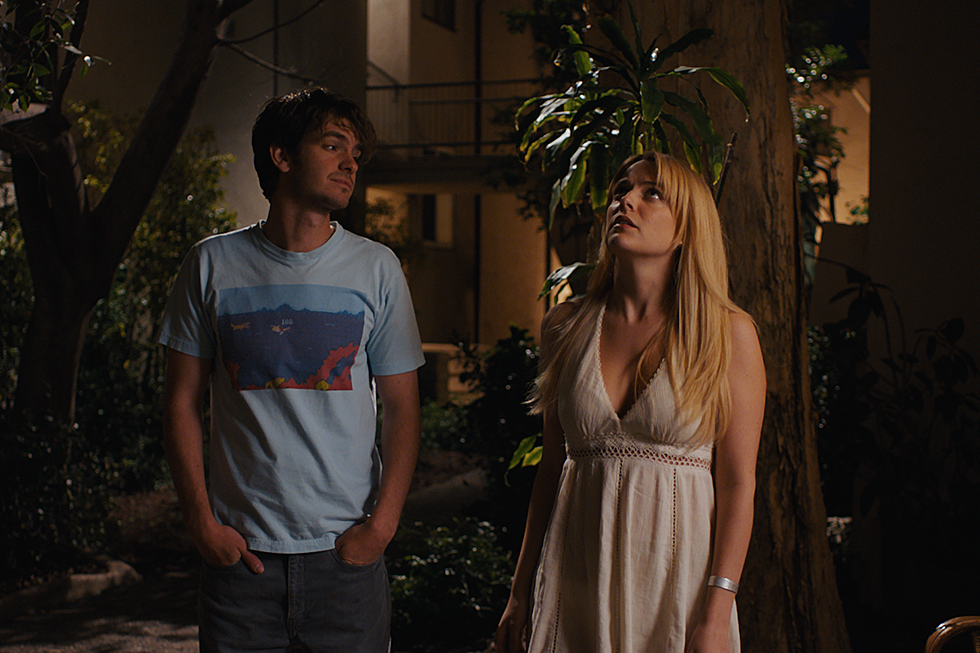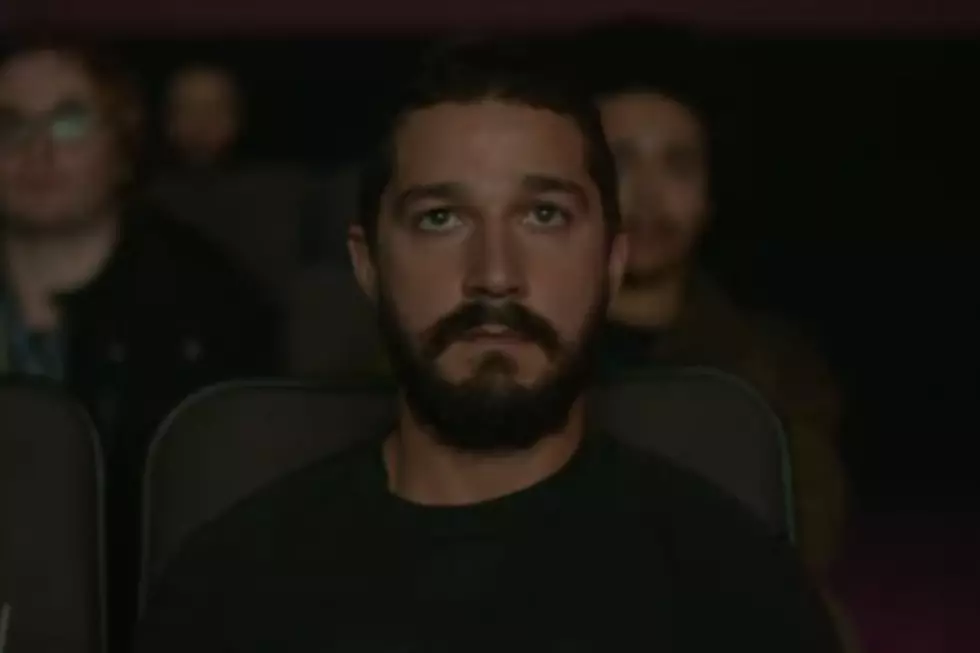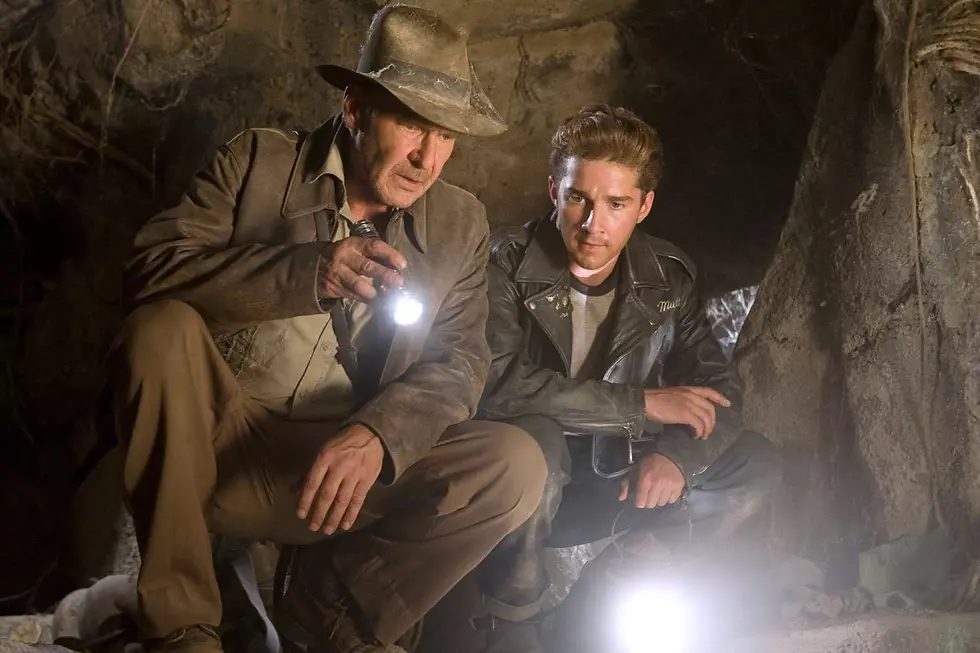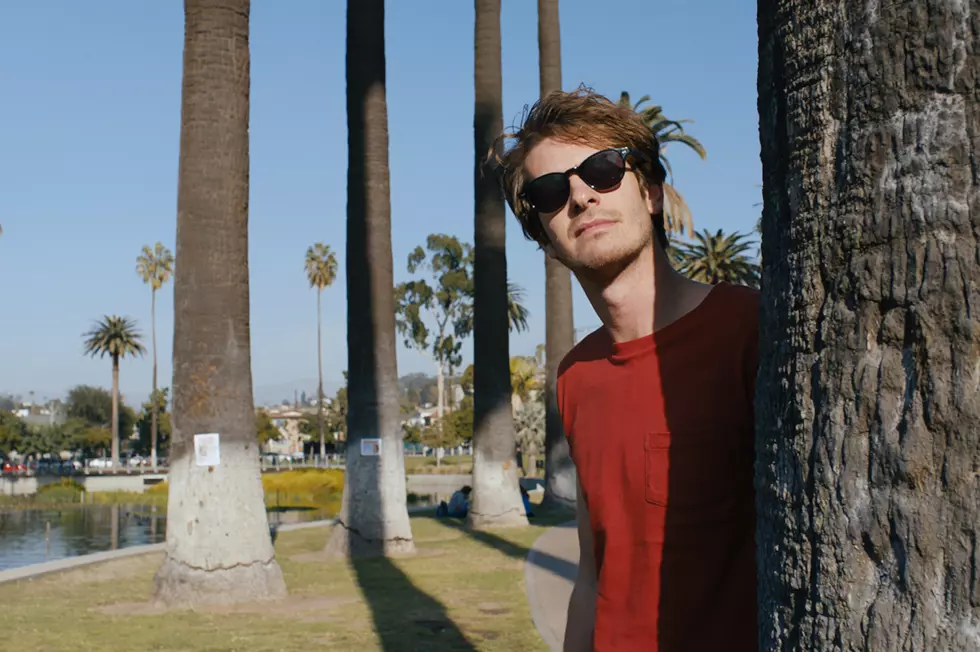
‘American Honey’ Review: An Intimate Odyssey Through the Wild Midwest
Imagine if Larry Clark was a woman, capable of depicting the inner lives of disenfranchised youth with nuance and sensitivity. Imagine a road trip through Middle America as presented by Claire Denis. Now imagine those elements with brutal emotional intensity and adistinct feeling of dread, along with the persistent threat of grotesque acts of violence lurking on the periphery. If you can imagine that, you might come close to approximating the experience of watching American Honey, the latest stumbling-of-age drama from Fish Tank director Andrea Arnold.
The phrase “tone poem” can sound pretentious and esoteric, but it’s an apt one for Arnold’s bold new film. Narratively simple but emotionally complex, American Honey is led by dazzling newcomer Sasha Lane. Like Where the Wild Things Are by way of Harmony Korine, American Honey is a hypnotic Midwestern odyssey as seen through the eyes of Star (Lane), an improbably hopeful and marginalized young woman desperate to escape a home that’s not just broken — it’s pulverized.
A chance encounter with a group of kindred spirits and their deviously charming ringleader, Jake (Shia LaBeouf), gives Star the impetus to escape an abusive father and hit the road. Her new companions aren’t just disenfranchised drifters; they work as traveling salespeople peddling magazine subscriptions with unimaginative sob stories about family illness and veteran misfortune. This occupation, essentially a creative approach to vagrancy, is shrewdly operated by an inhospitable woman (Riley Keough), who fulfills all the cliches you might associate with the sort of person named Krystal with a “K.”
Lane, LaBeouf, and Keough are impressively real in their performances, leading a rowdy cast of unknowns (and Arielle Holmes, the disarming star of Heaven Knows What) on a lyrical and often disquieting journey. Arnold’s attention to subtle specificity and mundane detail is impressive (doubly so when you consider that she hails from England), and immaculately captures the precarious lives of those who are frequently ignored. These kids aren’t some hidden part of society; they are willfully unseen, and Arnold forces us to see them.
Despite a narrative that some viewers may find banal in its simplicity, American Honey is remarkably poignant, thanks in large part to Lane, who was discovered by Arnold on a beach. Lane’s portrayal of the perceptibly damaged Star is about as genuine as you can get, with an emotional nuance that shouldn’t be taken for granted. Calling her “damaged” almost feels like an insult, but it’s a viscerally relatable component of Star, whose decision to ditch her lecherous father and her two siblings isn’t one she takes lightly. Though the impetus is hormonally-charged, it’s a choice that is, obviously, in her best interest.
Or is it? LaBeouf gives what may be a career-best performance as Jake, a cocky huckster who makes a living off of his ability to successfully sell that which is undesirable — including himself. With a charisma that’s dubious at best, Jake is the embodiment of the worst boyfriend you ever had; the one that made you abandon all common sense to become an active participant in your own heartbreak. Jake is what would happen if Jordan Catalano knew how to read.
The palpable unease in Jake’s fickle presence is nothing in comparison to the all-consuming dread of watching Star interact with other men. Every time she hops in the car with strange, middle-aged white guys, there’s an inescapable, nauseating sense of impending trauma. It says something truly significant — and disturbingly authentic — when the most harmless character Star encounters is an actual bear. Perhaps we, as viewers, have been trained — through life and the art that imitates it — to expect the absolute worst from a scenario in which a relatively naive young woman is left alone with someone whose intentions are vaguely implied only by his gender.
One such scenario is undeniably difficult to watch: Star is not physically harmed, but the emotional gravity of this surreal exchange is recognizably painful. It is an intangible thing that beckons empathy from the most sorrowful of places hidden within. It is the moment when you can either identify with or reject Star based on her choices; it defines the difference between being taken advantage of and consenting to being used.
American Honey depicts a harsh truth that may not be easy to empathize with if you’ve never felt exploited or violated. For Star, there are no healthy relationships, just shades of being used; by those who take unwanted advantage, those who try to barter for her affection, and those who are granted permission. Jake is the lesser of many evils, and the most viable romantic prospect Star has ever known; someone who uses her in a way that she can enjoy, whether or not she’s aware of his manipulations.
The notion of taking a road trip to “find yourself” is a privileged one, but Arnold shows us the inverse of this concept to fully immerse Star — and the audience — in an overwhelming reality that is rapturous and hideous in equal measure. That feeling of sensory overload is accentuated by a soundtrack mostly comprised of flamboyant rap (E-40 and Big Sean) with a little Springsteen and country thrown in for good measure, with Rihanna’s “We Found Love” serving as an ironic theme song.
But there’s nothing ironic about American Honey. Though it may come off as Malick for hip-hop-loving millennials, Arnold’s film is a surprisingly poignant experience, a sprawling yet intimate odyssey through Middle America, and a bracingly honest portrait of emerging adulthood. The impression it leaves behind is like the bittersweet residue of a memory, the full emotional impact of which is only felt upon reflection.
More From ScreenCrush









